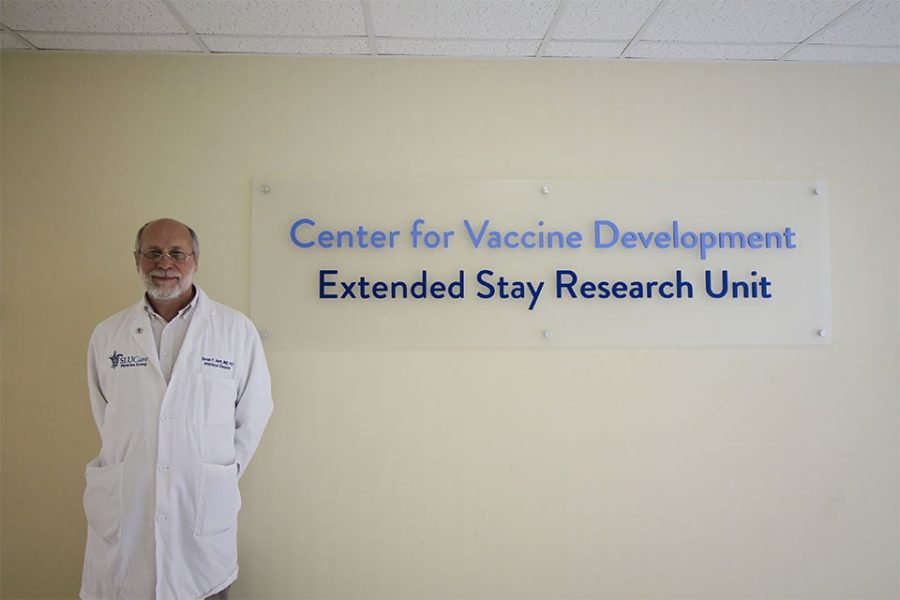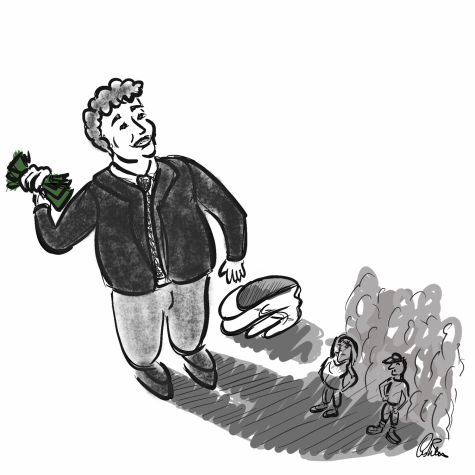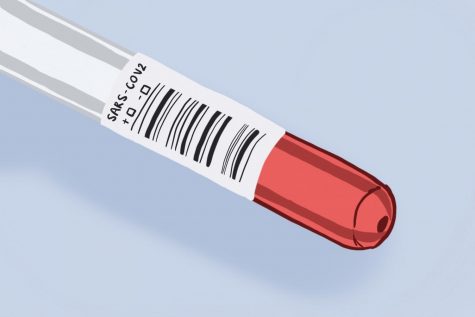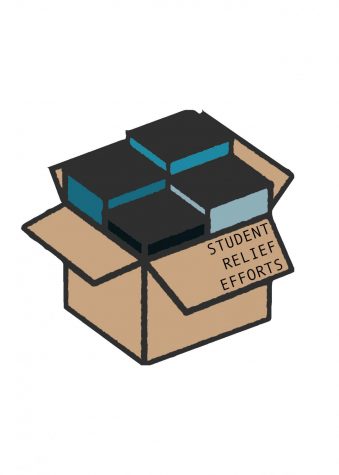Volunteers Exposed to Flu for New SLU Study
The only thing not pleasant about receiving a $3,310 check and state-of-the-art hospitality is potentially receiving the flu because of it. Last week, SLU’s Center for Vaccine Development initiated its human influenza challenge to better understand the flu and learn how to best prevent it in the future. As part of this study, human volunteers aged 18–49 will be staying on campus in SLU’s Extended Stay Research Unit, located within the Salus Center. This research resort houses 24 rooms featuring private bathrooms, Internet, TV and even catered meals. The only catch for the guests is that they may potentially catch the flu.
Participants will be injected with a vaccine or placebo and then will be exposed to a strain of the flu virus via a nasal spray. They will then be quarantined in the research unit and monitored on the clock for flu-like symptoms such as fever, body aches, coughing and diarrhea. Swabs from the nose and throat and samples of blood taken from the volunteers will provide researchers further insight into the body’s immune responses to the virus.
This “challenge” differs from more traditional flu vaccine research. Other clinical methods only administer the vaccine to see if the immune system will respond by creating antibodies to fight the virus, while this study deliberately challenges the body by injecting a vaccine and then exposing it to the flu to see if people get sick or not.
In a university press release, Daniel Hoft, M.D., Ph.D., Director of SLU’s Center for Vaccine Development, comments on the benefits of the challenge structure: “You know when they’re exposed to the flu, so you can plan exactly when to study it. You are not waiting for nature to take its course. If a challenge trial shows the vaccine protected a small group of volunteers against the flu, you can be much more confident the vaccine is more likely to be worth the hundreds of millions of dollars of investment to go through phase 3 development,” Hoft said.
The flu is a leading cause of death in the United States, with this past 2017–2018 flu season on record as one of the most severe. To combat this, new flu vaccines are developed every year to fight seasonal strains. The challenge is that the influenza virus is constantly mutating, which can render some vaccines less effective than they are predicted to be. Last year’s flu vaccine was only 40% effective, according to the CDC. The search is on for an effective, and even universal, vaccine for all strains of influenza.
As part of this search, SLU’s pioneering efforts in vaccine testing within its human “challenge” unit are funded by the National Institute of Allergy and Infectious Diseases. SLU is one of nine Vaccine and Treatment Evaluation Units that were chosen by the NIAID in 2013 to study vaccine development in order to protect people from infectious diseases.
Solomon Cargill, Ph.D. and associate professor of health care ethics in SLU’s College of Arts & Sciences, recognizes the advantages to this study, while also addressing potential ethical questions that can be raised from challenge studies like this.
“Broadly speaking, the first major ethical implication is that, unlike clinical care, which we understand to have an obligation to first ‘do no harm,’ this type of research, by intentionally exposing healthy people to the flu, clearly does some harm.”
This demonstrates the importance of measuring the weight of the potential benefits of the study against its risks. The risks of the study need not be zero, but must be minimized to participants, and for healthy participants, this usually means that any potential harms are temporary and reversible,” she added.
She also makes the point that studies like this that offer high compensation for participation can target those of lower socio-economic status or literacy levels, who may feel more pressure to expose themselves to danger for monetary rewards down the road.
Even though the Extended Stay Research Unit is designed carefully—with safety for volunteers and non-study participants in mind—the proximity of Cargill’s office to the Extended Stay Research Unit prompts her to question the ethicality of the location. “In other words,” she says, “by intentionally infecting people with the flu in a public building on campus, where many work and other patients come for treatment, does this study pose risks of infecting those who have not consented to be in this study?”.
Regardless of these ethical implications, Cargill concludes that “this research carries with it great potential benefits to society, since more effective flu vaccines would benefit most people and likely save the lives of those who are more vulnerable to the flu’s effects”.
Your donation will support the student journalists of Saint Louis University. Your contribution will help us cover our annual website hosting costs.












Nathan Kabbaz • Nov 4, 2019 at 9:32 am
I’m willing to volunteer for any flu or disease that needs to be studied. I don’t require compensation. I want to do what I can to help your staff achieve their goals for the greater good.